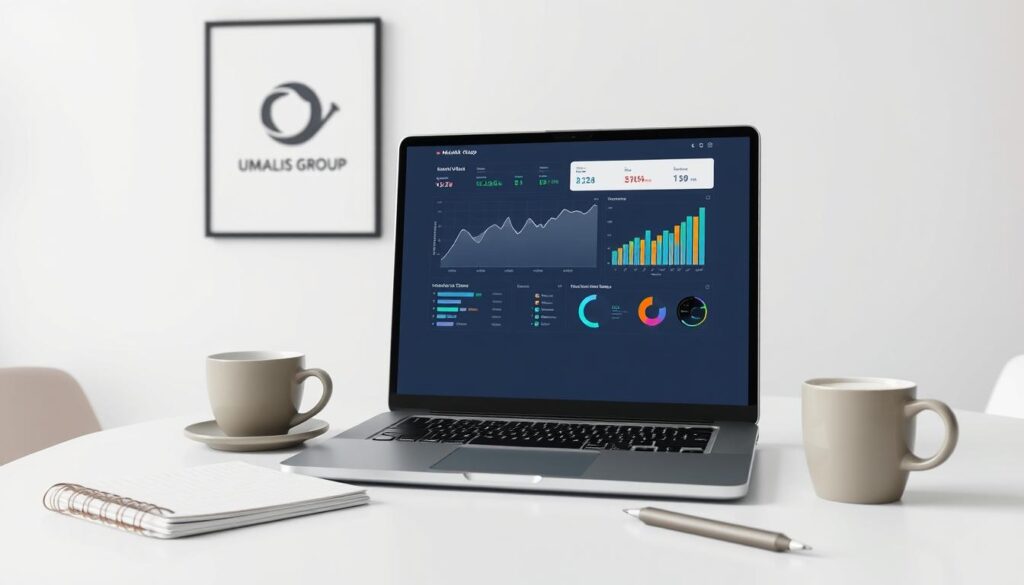Did you know 70% of professionals never discuss compensation during job interviews? This silent gap costs workers over $1 million in lifetime earnings, according to Harvard Business School research. Yet, as Professor Deepak Malhotra emphasizes: « Negotiation isn’t about confrontation—it’s about aligning expectations through preparation. »
Understanding your market value transforms career trajectories. Tools like IDA’s compensation analyzer reveal industry benchmarks, while legal experts at Tekna emphasize documenting achievements before compensation discussions. When done strategically, these conversations establish trust and professionalism from day one.
This guide combines institutional expertise with actionable frameworks. You’ll learn to navigate common scenarios—from entry-level roles to leadership positions—using evidence-based methods. Whether reviewing an initial offer or seeking promotions, structured preparation turns uncertainty into confidence.
Key Takeaways
- Lifetime earnings increase by 15-20% with proactive compensation discussions
- Market research tools provide objective benchmarks for informed decisions
- Documenting achievements strengthens your position in career advancement talks
- Legal advisors recommend framing requests around mutual benefit
- Role-playing scenarios with mentors builds negotiation confidence
The Role of Salary Negotiation in Career Growth
Career progression often hinges on pivotal moments where professionals assert their worth. While many focus on immediate gains, structured compensation conversations create ripple effects across decades. Harvard Business School studies show professionals who optimize these discussions earn 23% more over five years than peers who avoid them.
Understanding the Ripple Effect
Initial agreements set financial trajectories through compounding. A 5% difference in starting compensation grows exponentially with promotions and raises. IDA’s analysis reveals this gap widens to €58,000+ within eight years for mid-career roles.
| Time Frame | Standard Increase | Negotiated Increase | Value Difference |
|---|---|---|---|
| Year 1 | €45,000 | €47,250 | €2,250 |
| Year 3 | €48,600 | €52,290 | €3,690 |
| Year 5 | €52,488 | €59,327 | €6,839 |
Sustained Professional Development
Regular career conversations reinforce your market position. Industry leaders suggest reviewing compensation benchmarks every 18 months. « Documenting achievements transforms abstract value into tangible arguments, » notes HR strategist Marie Dupont.
Three critical practices enhance long-term outcomes:
- Tracking project impacts quarterly
- Comparing roles across industries annually
- Scheduling progress reviews bi-annually
These habits create objective foundations for advancement talks while aligning personal growth with organizational needs.
Researching Your Market Value and Salary Tools

Three out of four professionals underestimate their worth in compensation discussions. This gap highlights why objective data separates effective career planning from guesswork. Anders Dupont-Dall at IDA stresses: « Industry benchmarks transform abstract assumptions into actionable insights. »
Utilizing Salary Calculators Effectively
Modern tools like IDA’s compensation analyzer simplify complex comparisons. Focus on three factors when evaluating results:
- Regional cost-of-living adjustments
- Experience-level filters
- Industry-specific bonus structures
For example, tech roles in Paris show a 12% premium versus national averages. Cross-reference multiple sources to identify consistent patterns.
Comparing Industry Standards and Statistics
Recent data reveals 68% of employers adjust offers based on market shifts. Use this table to prioritize key metrics:
| Metric | Weight in Decisions | Data Source |
|---|---|---|
| Base compensation | 45% | IDA Salary Hub |
| Benefits package | 30% | Company reports |
| Career growth potential | 25% | Industry surveys |
Professionals who align their employment structure with current trends secure 19% better long-term outcomes. Regular market reviews help maintain competitive positioning without direct confrontation.
Preparing a Compelling Case for a Pay Increase
Building a strong case for career advancement starts with clarity and strategy. Professionals who systematically showcase their value gain better outcomes while maintaining positive workplace relationships. Let’s explore how to structure your approach for maximum impact.
Documenting Your Professional Achievements
Quantifiable results speak louder than vague claims. Start by creating a master list of contributions using this framework:
- Specific projects led or improved
- Measurable outcomes (e.g., « Boosted client retention by 18% »)
- Skills demonstrated through each success
IDA analysts recommend updating this list quarterly. One marketing specialist used this method to highlight campaign ROI, ultimately securing a revised package reflecting their strategic impact.
Aligning Your Goals with the Company’s Strategy
Top-performing companies reward employees who drive organizational priorities. Study recent earnings reports or leadership updates to identify alignment opportunities. For example, a software developer might emphasize how their coding innovations support the company’s AI expansion goals.
Consider this alignment checklist:
- Current departmental objectives
- Upcoming industry challenges
- Skills gaps your expertise addresses
By framing requests around shared success, you create collaborative momentum rather than adversarial dynamics. This way of presenting combines personal achievements with team-oriented thinking.
Effective Communication Tactics During Negotiation

Successful professionals recognize that clear dialogue shapes outcomes in career-defining moments. Tekna’s research shows 82% of managers respond positively to structured communication styles during advancement talks. Harvard Business School experts recommend treating these exchanges as collaborative problem-solving sessions rather than transactional debates.
Initiating the Conversation with Confidence
Start by framing discussions around shared goals. For example: « I’d like to explore how my contributions align with our team’s priorities this quarter. » This approach establishes professionalism while inviting collaboration. Three key elements for confident openings:
- Reference specific achievements from recent work
- Connect your growth to organizational needs
- Suggest flexible timing for detailed reviews
Active Listening and Strategic Questioning
Effective exchanges require balancing advocacy with inquiry. Use this table to guide your approach:
| Communication Approach | Purpose | Sample Phrase |
|---|---|---|
| Clarifying Questions | Uncover priorities | « What success metrics matter most for this role? » |
| Paraphrasing | Confirm understanding | « If I hear correctly, the focus is on… » |
| Open-Ended Probes | Expand possibilities | « How might we structure this to support team goals? » |
Entry-level roles often benefit from emphasizing learning agility, while higher-level positions require demonstrating strategic impact. A project manager increased their compensation package by 14% after presenting a concise overview of cross-departmental efficiencies achieved through their work.
Remember: Successful career growth stems from two-way exchanges that address both individual aspirations and organizational objectives. Regular practice with mentors helps refine these skills for various professional scenarios.
Essential Salary Negotiation Tactics for Career Advancement
Professionals often overlook strategic positioning when pursuing career growth. A recent IDA survey found candidates who frame requests around market benchmarks secure 28% better outcomes in compensation discussions. « Your value proposition should mirror current industry realities, » advises Tekna’s lead HR strategist Clara Dupont.
Start by researching comparable roles across your sector. For example, a Paris-based IT specialist discovered regional pay gaps using IDA’s tools—data that supported their case for a higher salary. Always present findings as collaborative solutions rather than demands.
When assessing a new job offer, evaluate the full package. One marketing director secured additional training budgets by highlighting how skill development would benefit the company. This approach aligns personal growth with organizational goals.
Three tactical steps to try negotiate effectively:
- Anchor discussions with verifiable market data
- Prepare alternative solutions for potential objections
- Schedule talks after demonstrating recent achievements
Make sure to practice scenarios with a mentor. A financial analyst role-played compensation talks, leading to a 19% increase during their annual review. Regular preparation transforms anxiety into confident dialogue.
Finally, approach each conversation as relationship-building. Professionals who maintain positive rapport while advocating for their worth often gain higher salary adjustments and accelerated promotions.
Negotiating Benefits and Alternative Compensation
When compensation discussions reach their limits, savvy professionals pivot to value beyond base pay. Tekna’s 2024 workforce analysis reveals 68% of employers now prioritize flexible benefits to attract talent. As HR lead Clara Dupont notes: « Total compensation isn’t just about money—it’s crafting a package that supports your lifestyle and growth. »
Exploring Non-Monetary Perks
Consider these high-impact benefits when pay ranges are fixed:
- Remote work options saving €300+/month in commuting costs
- Health insurance plans covering family members
- Performance-based bonuses tied to clear metrics
A Paris-based project manager recently secured €5,000 in annual training budgets instead of a direct raise. This approach maintained budget constraints while advancing their career path.
Leveraging Training and Career Development Opportunities
Skill-building programs often deliver lasting value. Use this framework to evaluate offers:
| Opportunity Type | Short-Term Value | Long-Term Impact |
|---|---|---|
| Certification courses | Immediate skill upgrade | +22% earning potential |
| Leadership mentoring | Networking access | Promotion readiness |
| Conference passes | Industry insights | Strategic visibility |
During interviews, frame requests around mutual benefit. For example: « How might we structure professional development to align with team goals? » This collaborative tone often yields better results than direct demands.
Remember: Compensation includes both tangible and intangible elements. Professionals who balance these factors create packages that evolve with their careers.
Salary Negotiation in Job Offers and Interviews
Your first job offer sets the foundation for long-term career growth. Tekna’s career advisors emphasize that early-stage discussions require strategic patience. « Let employers present their initial proposal—this reveals their priorities, » suggests HR lead Clara Dupont. This approach creates space for informed dialogue rather than rushed decisions.
Building a Data-Driven Foundation
Start by gathering industry benchmarks through platforms like IDA’s Salary Hub. Compare roles using:
- Regional economic factors
- Company size and funding status
- Specialized skill requirements
For example, Paris-based tech employees earn 8-12% more than national averages for similar positions. Presenting verified statistics transforms subjective requests into collaborative problem-solving.
When employers mention compensation first, use open-ended questions: « How does this figure align with current market standards? » This invites discussion while maintaining professionalism. Recent surveys show 73% of hiring managers adjust offers when candidates demonstrate thorough research.
Structuring Productive Exchanges
Follow this three-phase framework for effective discussions:
| Phase | Action | Outcome |
|---|---|---|
| 1. Exploration | Clarify role expectations | Establishes shared goals |
| 2. Validation | Present market comparisons | Builds objective justification |
| 3. Resolution | Propose adjustable terms | Encourages mutual agreement |
One software developer secured a 14% higher starting package using this method. They highlighted how their AI expertise addressed the company’s expansion plans, aligning personal strengths with organizational needs.
Remember: Early career conversations shape earning trajectories. Professionals who approach these moments with preparation and poise often gain accelerated advancement opportunities.
Conclusion
Career advancement thrives when strategy meets preparation—a process requiring ongoing refinement. Insights from Harvard Business School, IDA, and Tekna reveal that structured planning transforms abstract goals into measurable results. Regular market analysis and achievement tracking become integral parts of professional growth.
Key tips for success include aligning requests with industry benchmarks and framing discussions around mutual benefit. Documenting contributions quarterly helps maintain objective foundations for career conversations. Remember: investing hours in research builds confidence that shines through in pivotal moments.
This process evolves as you progress. Early-career professionals might focus on skill development, while leaders emphasize strategic impact. Whatever your stage, applying these tips ensures you articulate value clearly and professionally.
Now’s the time to act. Use these strategies as your roadmap for shaping rewarding career paths—one informed conversation at a time.
FAQ
How does discussing compensation affect future career opportunities?
Proactively addressing pay during key moments establishes your value early, compounding over time. It sets benchmarks for raises, promotions, and retirement contributions while signaling confidence to employers.
What resources help assess my professional worth accurately?
Platforms like Glassdoor, Payscale, and industry-specific reports provide real-time data. Combine these with insights from mentors or recruiters to contextualize regional and role-specific trends.
What evidence strengthens requests for elevated compensation?
Quantify achievements using metrics like revenue growth, cost savings, or project timelines. Align these results with your employer’s strategic priorities to demonstrate shared success.
How do I maintain rapport during sensitive discussions?
Frame requests collaboratively—focus on mutual goals rather than demands. Practice active listening to identify priorities, and use open-ended questions like “How can we align my contributions with team objectives?”
Should I prioritize flexibility over base pay?
Remote work options, extended leave, or skill-development budgets often provide long-term value. Evaluate what supports your lifestyle—sometimes a 4-day week or stock options outweighs immediate cash gains.
What’s the best approach for initial offer discussions?
Research typical compensation bands beforehand using tools like LinkedIn Salary. Express enthusiasm for the role while respectfully requesting adjustments based on your documented expertise and market standards.

